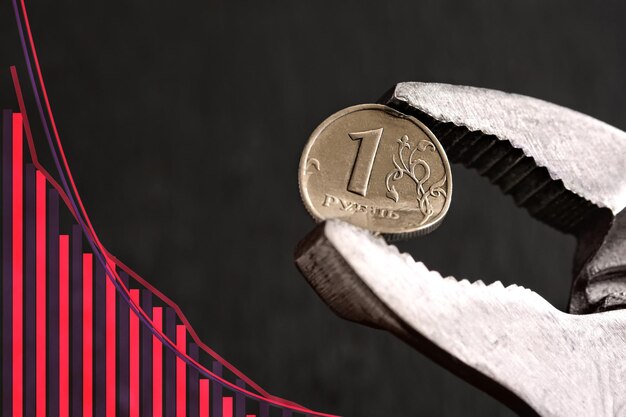Bitcoin, the world’s most popular cryptocurrency, has gained significant attention in recent years due to its potential for high returns and its ability to provide financial independence. As the cryptocurrency market continues to evolve, more and more people in the UK are becoming interested in investing in Bitcoin. However, investing in Bitcoin can be complex and risky, especially for those who are new to the world of cryptocurrencies.
This comprehensive guide aims to provide you with all the information you need to successfully invest in Bitcoin in the UK. Whether you are a beginner or an experienced investor, this guide will cover everything from the basics of Bitcoin to the different methods of investing, as well as the various risks and challenges you may encounter along the way.
Before diving into the world of Bitcoin investing, it’s important to understand the basics. Bitcoin is a decentralized digital currency that was created in 2009 by an unknown person or group of people using the name Satoshi Nakamoto. It operates on a technology called blockchain, which is a distributed ledger that records all transactions made with Bitcoin. Unlike traditional currencies, Bitcoin is not issued or regulated by any central authority, such as a government or a central bank.
Investing in Bitcoin can be done through various methods, including buying and holding Bitcoin, trading Bitcoin on cryptocurrency exchanges, and investing in Bitcoin-related assets such as Bitcoin mining companies or Bitcoin ETFs. Each method has its own advantages and risks, and it’s important to consider your investment goals, risk tolerance, and level of expertise before choosing a method.
As with any investment, investing in Bitcoin comes with its own set of risks and challenges. The cryptocurrency market is highly volatile, with prices fluctuating rapidly and unpredictably. Additionally, the lack of regulation and oversight in the cryptocurrency industry can make it susceptible to fraud and scams. It’s important to do thorough research, seek advice from financial professionals, and only invest what you can afford to lose.
Understanding Bitcoin: A Beginner’s Guide
Bitcoin, the first decentralized cryptocurrency, has gained significant popularity and media attention in recent years. Created in 2009 by an unknown person or group of people using the pseudonym Satoshi Nakamoto, Bitcoin operates on a technology called blockchain. This technology allows transactions to be recorded on a public ledger, providing transparency and security.
Bitcoin is not controlled by any central authority, such as a government or financial institution. Instead, it relies on a network of computers that validate and confirm transactions. This decentralized nature makes Bitcoin resistant to censorship and manipulation.
One of the key features of Bitcoin is its limited supply. There will only ever be 21 million Bitcoins in existence, ensuring scarcity and potentially increasing value over time. This scarcity is achieved through a process called mining, where powerful computers solve complex mathematical problems to validate transactions and add them to the blockchain.
Investing in Bitcoin can be done in several ways. You can buy Bitcoin directly from an exchange or use a Bitcoin wallet to store your Bitcoins. Some investors also choose to invest in Bitcoin through derivative products, such as futures or options.
| Advantages of Bitcoin | Disadvantages of Bitcoin |
|---|---|
| – Decentralized and resistant to censorship | – Volatile and high-risk investment |
| – Potential for high returns | – Lack of regulation and consumer protection |
| – Global accessibility and ease of use | – Limited merchant acceptance |
| – Security and privacy | – Potential for illegal activities |
Before investing in Bitcoin, it’s important to understand the risks involved and to do thorough research. Bitcoin prices can be highly volatile, and it’s possible to lose a significant amount of money. It’s essential to only invest what you can afford to lose and to diversify your investment portfolio.
Additionally, it’s crucial to be mindful of security measures when dealing with Bitcoin. As Bitcoin transactions are irreversible, it’s important to protect your private keys and use trusted wallets and exchanges.
In conclusion, Bitcoin is a digital currency that operates on a decentralized network called blockchain. It offers advantages such as decentralization, potential for high returns, and security, but also comes with risks such as volatility and lack of regulation. Before investing in Bitcoin, it’s crucial to understand the technology and risks involved.
What is Bitcoin?
Bitcoin is a decentralized digital currency that was created in 2009 by an unknown person or group of people using the name Satoshi Nakamoto. Unlike traditional currencies such as the British pound or the US dollar, Bitcoin is not issued or controlled by any central authority, such as a government or a financial institution.
Bitcoin operates on a technology called blockchain, which is a distributed ledger that records transactions across multiple computers. This technology ensures the transparency and security of Bitcoin transactions.
One of the key features of Bitcoin is its limited supply. There will only ever be 21 million bitcoins in existence. This scarcity, combined with increasing demand, has led to Bitcoin’s value skyrocketing over the years, making it one of the most successful investments of the past decade.
Bitcoin can be used to make transactions with merchants who accept it as a form of payment. It can also be bought and sold on cryptocurrency exchanges, where its value fluctuates based on supply and demand.
While Bitcoin has gained mainstream acceptance and is considered a legitimate investment by many, it is important to note that it is a highly volatile asset. Its value can fluctuate dramatically in short periods of time, and investing in it carries a certain level of risk.
Disclaimer: The information provided here is for informational purposes only and should not be taken as financial or investment advice. Always do your own research before making any investment decisions.
The Rise of Bitcoin in the UK
The United Kingdom has emerged as a major player in the world of Bitcoin. With its strong economy, technologically advanced financial sector, and progressive regulatory environment, the UK has become a hub for Bitcoin activity.
Early Adoption
Bitcoin first gained traction in the UK in the early 2010s. Tech-savvy individuals and early adopters recognized the potential of this digital currency and started to invest in it. Bitcoin exchanges and wallets began to appear, providing a platform for UK residents to buy, sell, and store their Bitcoin securely.
The growth of Bitcoin in the UK was also fueled by the increasing popularity of online shopping and e-commerce. More and more businesses started accepting Bitcoin as a form of payment, providing consumers with an alternative to traditional currencies.
Mainstream Acceptance
In recent years, Bitcoin has gained widespread acceptance in the UK. Major retailers, including some high street brands, have started accepting Bitcoin as a payment option. This mainstream acceptance has further boosted the popularity of Bitcoin among UK consumers.
The media coverage of Bitcoin has also played a significant role in its rise in the UK. Numerous news outlets have covered Bitcoin extensively, creating awareness and generating interest among the general public. This increased awareness has encouraged more people to consider investing in Bitcoin.
Government Regulation
The UK government has been proactive in creating a favorable regulatory environment for Bitcoin and other cryptocurrencies. The Financial Conduct Authority (FCA) has implemented regulations to protect consumers and prevent illegal activities while still allowing innovation in the cryptocurrency space.
This regulatory framework has provided a sense of security and legitimacy to the Bitcoin market in the UK. Investors can rely on the government’s oversight and regulations to ensure a fair and transparent market.
In conclusion, the rise of Bitcoin in the UK can be attributed to early adoption by tech-savvy individuals, mainstream acceptance by retailers, and supportive government regulation. As Bitcoin continues to gain popularity, the UK is likely to remain a key player in the global Bitcoin ecosystem.
Investing in Bitcoin: Is it a Good Idea?
Bitcoin, the world’s leading cryptocurrency, has gained significant attention in recent years. With its rapid rise in value and increasing mainstream adoption, many people are wondering if investing in Bitcoin is a good idea.
While Bitcoin has certainly produced impressive returns for some investors, it is important to recognize that investing in cryptocurrencies, including Bitcoin, comes with a high level of risk. The price of Bitcoin is known for its volatility, which means that its value can fluctuate greatly in a short period of time.
Furthermore, the cryptocurrency market is largely unregulated and susceptible to manipulative practices, such as price manipulation and fraudulent schemes. This makes it crucial for investors to exercise caution and conduct thorough research before investing in Bitcoin.
On the other hand, proponents of Bitcoin argue that it has the potential to revolutionize the financial industry and become a global digital currency. They believe that Bitcoin’s decentralized nature and limited supply make it a valuable investment that can serve as a hedge against traditional currencies and traditional financial systems.
Additionally, Bitcoin has been gaining institutional acceptance, with several major companies and financial institutions investing in Bitcoin or offering Bitcoin-related products and services. This increased institutional adoption has added a level of legitimacy to Bitcoin and could potentially drive its value higher in the long run.
Ultimately, whether investing in Bitcoin is a good idea or not depends on individual circumstances and risk tolerance. It is important to carefully consider factors such as financial goals, investment horizon, and the amount of capital that can be comfortably invested.
| Pros | Cons |
|---|---|
| High potential for returns | High volatility |
| Institutional acceptance | Lack of regulation |
| Diversification | Potential for fraud and scams |
In summary, investing in Bitcoin can be a good idea for those who are willing to take on the risks associated with cryptocurrencies and believe in the potential of Bitcoin. However, it is important to approach Bitcoin investments with caution, conduct thorough research, and only invest what you can afford to lose.
How to Buy Bitcoin in the UK
If you’re interested in buying Bitcoin in the UK, there are several steps you need to take.
1. Choose a Bitcoin Wallet
The first step is to choose a Bitcoin wallet, which is where you will store your Bitcoin securely. There are various types of wallets available, including hardware wallets, mobile wallets, desktop wallets, and online wallets. Research the different options and choose one that suits your needs.
2. Find a Bitcoin Exchange
Next, you’ll need to find a reputable Bitcoin exchange. This is where you can buy and sell Bitcoin using traditional currency. Look for an exchange that offers a user-friendly interface, good security measures, and competitive fees. Some popular exchanges in the UK include Coinbase, Binance, and Kraken.
3. Sign Up and Complete Verification
Once you’ve chosen an exchange, you’ll need to sign up for an account. This usually involves providing your email address, creating a password, and agreeing to the exchange’s terms and conditions. You may also need to complete a verification process, which often requires providing proof of identity and address.
4. Deposit Funds
After completing the sign-up process, you’ll need to deposit funds into your exchange account. This can usually be done using a bank transfer or by linking a debit or credit card to your account. Follow the instructions provided by the exchange to complete the deposit.
5. Place an Order
Once your account is funded, you can place an order to buy Bitcoin. Determine the amount of Bitcoin you want to purchase and the price you’re willing to pay. You can choose to buy Bitcoin at the current market price or set a specific price at which to buy. Review the details of your order and confirm the purchase.
6. Store Your Bitcoin Securely
After your purchase is complete, it’s important to store your Bitcoin securely. If you’re using a hardware wallet, ensure that you keep it in a safe place and that you have backup copies of your wallet’s recovery phrase. If you’re using a software wallet, make sure you have a strong password and enable two-factor authentication.
Remember, buying Bitcoin involves risks, and the market can be volatile. It’s important to do your own research, understand the risks involved, and only invest what you can afford to lose.
Bitcoin Wallets: Keeping Your Investment Secure
Introduction:
When it comes to investing in Bitcoin, one of the most important aspects you need to consider is how to keep your investment secure. As a digital currency, Bitcoin is not physically stored like traditional money. Instead, it exists only in digital form, which means that you need a Bitcoin wallet to store and manage your investment.
What is a Bitcoin wallet?
A Bitcoin wallet is a software application or a physical device that allows you to securely store, send, and receive Bitcoin. It works by generating a pair of cryptographic keys: a public key and a private key.
Public key:
Your public key is like your Bitcoin address. It is a long alphanumeric string that you share with others when you want to receive Bitcoin. Think of it as your account number. You can have multiple Bitcoin addresses associated with your wallet, which allows you to track different transactions or receive Bitcoin from different sources.
Private key:
Your private key is like your password. It is a secret, unique code that allows you to access and manage your Bitcoin. It is crucial that you keep your private key secure, as anyone who has access to it can potentially steal your Bitcoin. Without the private key, you cannot access or spend your Bitcoin.
Types of Bitcoin wallets:
There are several types of Bitcoin wallets to choose from:
1. Software wallets: These are applications that you can download and install on your computer or smartphone. They provide a convenient way to access and manage your Bitcoin, but they are only as secure as the device they are installed on. Make sure to keep your software wallet updated and use strong, unique passwords.
2. Hardware wallets: These are physical devices specifically designed to securely store your Bitcoin. They typically use offline storage and provide an extra layer of security by keeping your private keys isolated from potential online threats. While hardware wallets may require an initial investment, they are considered one of the most secure options available.
3. Paper wallets: These are physical printouts of your public and private keys. They offer offline storage similar to hardware wallets, but they are vulnerable to physical damage or loss. Additionally, paper wallets may be less user-friendly for daily use compared to software or hardware wallets.
Conclusion:
Securing your Bitcoin investment is crucial to protect your funds from potential theft or loss. Choosing the right Bitcoin wallet is an important step in this process. Consider your security needs, convenience, and ease of use when selecting a wallet. Remember to always keep your private key secure and regularly backup your wallet to avoid any potential risks or mishaps.
Taxes and Regulations: Bitcoin in the UK
When it comes to taxes and regulations, investing in Bitcoin in the UK is subject to specific rules and guidelines. It is important for investors to understand these regulations to ensure that they comply with the law and avoid any potential penalties or legal issues.
In the UK, Bitcoin and other cryptocurrencies are considered taxable assets. Therefore, any profits made from buying and selling Bitcoin are subject to capital gains tax (CGT). The rate of CGT depends on the individual’s income tax bracket, with rates ranging from 10% to 20%.
It is crucial for investors to keep records of all their Bitcoin transactions, including the purchase price, sale price, and any associated fees. This information will be required when calculating the capital gains tax owed. Failure to accurately report and pay the necessary taxes can result in penalties and fines.
Furthermore, it is worth noting that Bitcoin transactions are also subject to anti-money laundering (AML) and know-your-customer (KYC) regulations in the UK. Exchanges and other platforms that facilitate the buying and selling of Bitcoin are required to comply with these regulations, which involve verifying the identities of their users.
Additionally, the Financial Conduct Authority (FCA) in the UK has stated that certain types of cryptocurrencies, such as security tokens, may fall under their regulatory jurisdiction. This means that specific cryptocurrencies may be subject to additional regulations and oversight by the FCA.
It is advisable for investors to familiarize themselves with the latest tax laws and regulations surrounding Bitcoin in the UK. Seeking professional advice from accountants or tax experts who specialize in cryptocurrencies can also be beneficial in ensuring compliance with tax obligations and regulations.
In conclusion, investing in Bitcoin in the UK comes with its own set of taxes and regulations. Understanding and complying with these rules is essential for investors to avoid legal issues and penalties. It is important to keep accurate records of transactions and seek professional advice when needed.
Question-answer: Way to Buy Bitcoin
How can one use a debit card to purchase bitcoin on a crypto exchange, and what security measures should be taken to protect their crypto assets?
Using a debit card to purchase bitcoin on a crypto exchange involves linking the card to the exchange account and selecting the desired amount of bitcoin. To protect crypto assets, enable two-factor authentication and regularly monitor account activity.
Why is it important for investors to be prepared to lose all the money they invest in crypto, and what risk management strategies should they consider?
It’s crucial for investors to be prepared to lose all invested money in crypto due to the market’s volatility. Risk management strategies include setting stop-loss orders, diversifying the portfolio, and only investing what one can afford to lose.
How does the concept of protecting against potential losses if something goes wrong apply to individuals investing in crypto assets, and what precautions should they take?
Protecting against potential losses involves using secure crypto wallets, employing hardware wallets for long-term storage, and staying informed about security best practices. Precautions include avoiding phishing scams and regularly updating security settings.
What are the best crypto exchanges for buying and selling cryptocurrencies, and how do users determine the reliability of an exchange?
Some of the best crypto exchanges include Coinbase, Binance, and Kraken. Users can determine the reliability of an exchange by checking its reputation, security features, regulatory compliance, and user reviews.
How do Bitcoin ATMs contribute to the process of buying bitcoin, and what considerations should users have when using these ATMs?
Bitcoin ATMs provide a physical way to purchase bitcoin using cash. Users should consider the fees associated with Bitcoin ATMs, check the machine’s location for security, and ensure they have a secure crypto wallet to receive the purchased bitcoin.
Why is the process of buying bitcoin in the UK unregulated, and what potential advantages or disadvantages does this lack of regulation pose for investors?
The process of buying bitcoin in the UK is unregulated, offering flexibility to investors. However, the lack of regulation may lead to potential risks such as fraudulent schemes or unreliable exchanges, emphasizing the need for due diligence.
How can individuals learn how to buy bitcoin, especially if they are new to the cryptocurrency space, and what educational resources are available?
Beginners can learn how to buy bitcoin through online guides, video tutorials, and educational resources provided by reputable crypto exchanges. Platforms like Coinbase often offer step-by-step guides to assist newcomers.
What is the best way to buy bitcoin in the UK, and are there specific considerations for users looking to make their first bitcoin purchase?
The best way to buy bitcoin in the UK involves using well-established exchanges like Coinbase or Binance. First-time buyers should consider transaction fees, ease of use, and security features when choosing a platform.
How does the value of bitcoin remain resilient, and what factors contribute to the worth of bitcoin as a crypto asset?
The value of bitcoin remains resilient due to factors like limited supply (21 million), increasing demand, adoption by institutional investors, and its decentralized nature. These factors contribute to its scarcity and store of value characteristics.
What role do credit or debit cards play in the process of buying crypto, and what considerations should users take into account when using these payment methods?
Credit or debit cards facilitate convenient and quick purchases of crypto. Users should consider transaction fees, card security features, and potential cash advance fees when using credit cards for crypto purchases. Debit cards are often a more cost-effective option.







No responses yet